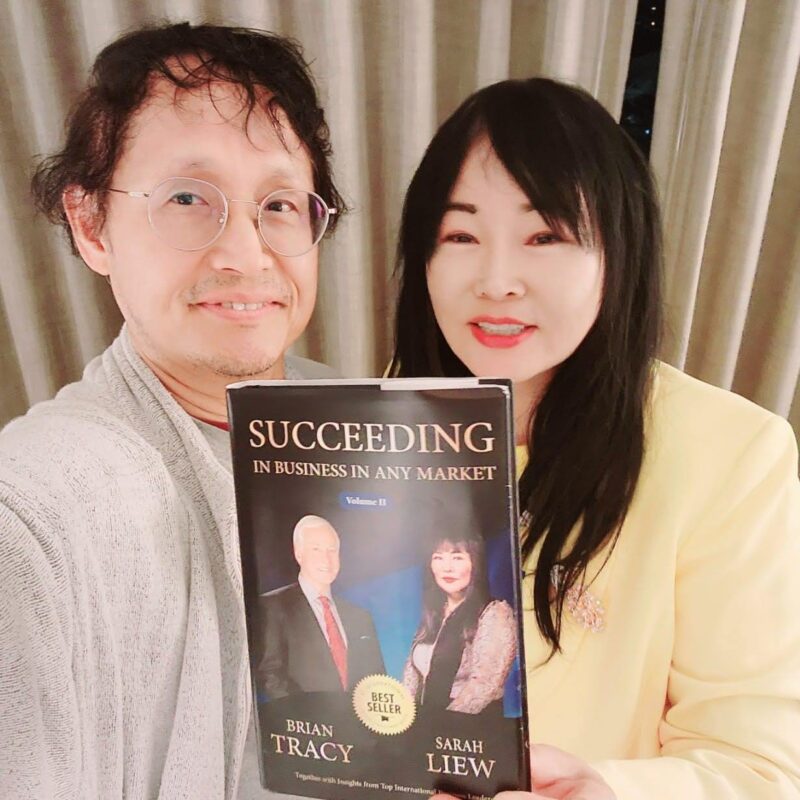By: Meridian Beverly Hills Investment & Legal Group
Servant leadership stands as a powerful model in today’s world, emphasizing humility, empathy, and selfless service. In Guidance from the Past, Vision for the Future: Biblical Leadership in Today’s World, Dr. Sarah Sun Liew explores the lives of Jesus, Joseph, and Mary as profound examples of servant leadership. Each of these figures exemplifies how leading with compassion and integrity can produce transformative results. This article delves into their lives, highlighting the timeless lessons they offer to modern leaders.
Jesus: The Ultimate Model of Humble Leadership

Jesus Christ embodies servant leadership at its core, leading through humility, compassion, and a focus on serving others. One of the most compelling examples of Jesus’ approach is his act of washing his disciples’ feet—an action that symbolized service and humility. This gesture was deeply symbolic, as foot washing was traditionally a task for the lowest servant. By performing this act himself, Jesus demonstrated a commitment to serving others without regard for status or recognition.
Jesus’ interactions with marginalized individuals further illustrate his servant leadership. He consistently engaged with those rejected by society, offering them acceptance, healing, and understanding. His leadership style was centered on meeting people’s needs, fostering inclusivity, and empowering others, rather than asserting authority.
For contemporary leaders, Jesus’ example provides a powerful model of humility and empathy. Leaders who prioritize the well-being of their teams and adopt an inclusive, supportive approach foster a culture of trust and loyalty. Jesus’ leadership reminds modern professionals that true leadership involves placing the needs of others first, leading to a stronger, more united organization.
Joseph: Navigating Challenges with Compassion
Joseph, the earthly father of Jesus, also exemplifies servant leadership through his actions and choices. Despite facing immense societal pressures and personal sacrifices, Joseph navigated his role with resilience, humility, and compassion. His dedication to supporting and protecting his family, even under challenging circumstances, highlights a leadership approach based on empathy and responsibility.
Joseph’s story is particularly relevant for leaders dealing with complex situations and interpersonal dynamics. Faced with societal expectations and personal challenges, he consistently prioritized his family’s welfare. Dr. Liew emphasizes that Joseph’s example illustrates how a commitment to others, even when difficult, can create a supportive and secure environment for growth and unity.
Contemporary leaders can draw from Joseph’s example by embracing empathy and prioritizing team unity. By supporting their teams during difficult times and making decisions that benefit the greater good, leaders can foster a collaborative and compassionate environment. Joseph’s journey underscores that true servant leadership involves putting the well-being of others above personal gain and striving for collective success.
Mary: Nurturing Leadership

Mary, the mother of Jesus, offers a powerful example of nurturing and selfless leadership. Her support of Jesus’ mission and her role in caring for her family exemplify a leadership style centered on guidance and encouragement. Mary’s acceptance of her responsibilities and her dedication to nurturing those around her reflect the deep impact of a nurturing approach.
Mary’s style of leadership is highly relevant in today’s professional landscape, where mentoring and support are crucial. Dr. Liew highlights that by embracing a nurturing role, leaders can foster environments where team members feel valued and empowered to reach their full potential. Mary’s leadership teaches that encouragement and support are essential to building strong, successful teams.
Mary’s approach also emphasizes the importance of creating an environment that fosters growth and development. Leaders who invest in their team members’ growth, providing them with resources and support, help create an organization where individuals are encouraged to thrive. Mary’s example serves as a reminder of the importance of nurturing leadership in cultivating a resilient and high-performing team.
Dr. Sarah Sun Liew’s Insights
In Guidance from the Past, Vision for the Future, Dr. Sarah Sun Liew draws on the lives of Jesus, Joseph, and Mary to showcase the enduring relevance of servant leadership. She emphasizes that servant leadership is rooted in placing others’ needs above one’s own ambitions, fostering a compassionate and collaborative environment. Dr. Liew’s analysis of these biblical figures underscores the significance of humility, empathy, and a commitment to the greater good.
Dr. Liew also explores how servant leadership is essential for modern leaders facing fast-paced and complex environments. By following the examples of Jesus, Joseph, and Mary, leaders can build teams that value integrity, collaboration, and resilience. Her work emphasizes that servant leadership can lead to lasting positive change, not only in organizations but in the broader community.
Application in Modern Leadership
The principles of servant leadership exemplified by Jesus, Joseph, and Mary offer practical guidance for leaders today:
- Humble Service: Jesus’ leadership shows that humility and a willingness to serve others can create a supportive and inclusive environment. Leaders who place the needs of their teams first foster loyalty, trust, and cooperation.
- Compassionate Decision-Making: Joseph’s journey illustrates the importance of empathy and a focus on collective well-being. Leaders who make compassionate decisions create a positive organizational culture where individuals feel valued and respected.
- Nurturing Growth: Mary’s example demonstrates the impact of nurturing leadership. Leaders who encourage growth and support their teams’ development help create an environment where everyone can thrive and reach their full potential.
Dr. Liew’s Authorship, Recognition, and Media Presence
Dr. Sarah Sun Liew is an internationally recognized author, educator, and thought leader. Her book, Guidance from the Past, Vision for the Future, has garnered praise for its deep insights into leadership, drawing from historical narratives to provide actionable lessons for modern professionals. Her work has been featured in over 500 global publications, including The Wall Street Journal, Yahoo Finance, and Fox News, reaching a diverse audience with her innovative perspectives on leadership and personal growth.
Dr. Liew’s contributions have also earned her significant accolades. In 2023, she received the prestigious Menorah of Peace Award from The Institute of Noahide Code for her dedication to promoting peace and community service. Additionally, she was honored as one of the “Top 15 Entrepreneurs Shaping the Business World” by International Business Times, recognizing her achievements in the real estate and fintech sectors through her roles at Meridian Beverly Hills Realty and MPS Merchant Services Group Inc.
Her media presence has further expanded her influence, as she works with major media outlets like CEO Weekly, Los Angeles Wire, and Voyage New York to share her leadership insights with a global audience. Through these platforms, Dr. Liew has been able to connect with leaders worldwide, promoting values-driven leadership practices that transcend industry boundaries.
Conclusion
The lives of Jesus, Joseph, and Mary provide timeless examples of servant leadership, each offering valuable insights into humility, compassion, and selfless service. Jesus’ model of humble leadership, Joseph’s compassionate approach, and Mary’s nurturing support highlight the transformative power of servant leadership. Dr. Sarah Sun Liew’s Guidance from the Past, Vision for the Future presents a comprehensive exploration of these figures, illustrating how their principles can be applied to contemporary leadership challenges.
By embracing the principles exemplified by Jesus, Joseph, and Mary, modern leaders can cultivate a servant leadership style that empowers and inspires their teams. Servant leadership not only builds strong, supportive teams but also creates positive, lasting impacts within organizations and communities. The lessons from these figures remind leaders that true success lies in serving others with integrity, empathy, and dedication.






